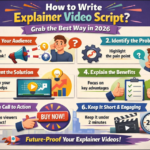
In today’s digital age, establishing a strong online presence is crucial for individuals and businesses alike. Social media platforms play a pivotal role in achieving this goal, offering powerful tools for connecting with audiences, building brand awareness, and driving traffic to websites. Choosing the right platforms and leveraging their unique features can significantly boost your online visibility and engagement. Let’s delve into some of the top social media platforms that can help skyrocket your online presence.
Contents
Why Social Media Matters for Your Online Presence
Before diving into specific platforms, let’s understand why social media is essential:
Definition: Social media platforms are digital channels where users create, share, and interact with content.
- Connectivity: They enable direct interaction with your audience.
- Visibility: They amplify your reach beyond traditional boundaries.
- Engagement: They foster meaningful connections and feedback.
1. Facebook
Facebook remains a powerhouse in the social media landscape, boasting billions of active users worldwide. It offers robust features for both personal profiles and business pages, including:
- Targeted Advertising: Reach specific demographics with precision.
- Analytics: Gain insights into your audience and post performance.
- Community Building: Create groups and foster communities around your brand.
Pro: Extensive audience reach and sophisticated advertising tools.
Con: Organic reach for business pages has declined, necessitating ad spend for broader visibility.
2. Instagram
Focused on visual content, Instagram is ideal for businesses in fashion, food, travel, and lifestyle sectors. Key features include:
- Visual Storytelling: Showcase products and services through images and videos.
- Influencer Marketing: Collaborate with influencers to reach new audiences.
- E-commerce Integration: Directly sell products through Instagram Shopping.
Pro: High engagement rates among younger demographics.
Con: Limited organic reach; algorithm prioritizes certain types of content.
3. Twitter
Known for its real-time updates and concise messaging, Twitter is invaluable for news-driven content and customer service. Key features include:
- Hashtags and Trends: Join conversations and increase discoverability.
- Customer Feedback: Quickly respond to queries and resolve issues.
- Brand Personality: Showcase brand voice and values through tweets.
Pro: Instantaneous reach and virality potential.
Con: High volume and fast-paced nature may require dedicated monitoring.
4. LinkedIn
LinkedIn is the premier platform for professional networking and B2B marketing. It offers unique features such as:
- Professional Profiles: Showcase expertise and career milestones.
- Content Publishing: Share industry insights and thought leadership.
- Lead Generation: Connect with decision-makers and prospects.
Pro: Targeted audience of professionals and business leaders.
Con: Organic reach can be limited without paid promotion.
5. YouTube
As the second-largest search engine after Google, YouTube is indispensable for video content marketing. Key features include:
- Video SEO: Optimize videos for search visibility within YouTube.
- Monetization: Earn revenue through ads and sponsorships.
- Long-form Content: Educate and engage audiences with detailed tutorials or vlogs.
Pro: Global reach and potential for viral content.
Con: High competition and investment in quality video production.
6. Pinterest
Ideal for visual discovery and inspiration, Pinterest attracts users looking for ideas on fashion, home decor, DIY projects, and more. Key features include:
- Visual Search: Users can search for products using images.
- Content Curation: Create boards that reflect your brand’s aesthetic.
- Shopping Ads: Drive traffic directly to product pages with promoted pins.
Pro: High purchase intent among users actively seeking inspiration.
Con: Niche audience primarily interested in visual content.
Choosing the Right Platforms for Your Goals
Selecting the best social media platforms depends on your audience demographics, content type, and marketing objectives. Consider the following factors when making your decision:
- Target Audience: Where does your audience spend their time online?
- Content Type: Which platform aligns best with your content format (e.g., images, videos, text)?
- Marketing Goals: Are you aiming for brand awareness, lead generation, or sales conversions?
Conclusion
Harnessing the power of social media platforms is essential for anyone looking to expand their online presence and engage with a broader audience. By strategically selecting and effectively utilizing platforms like Facebook, Instagram, Twitter, LinkedIn, YouTube, and Pinterest, you can enhance visibility, drive traffic, and build meaningful connections with your target audience. Stay updated with evolving trends and algorithms to optimize your social media strategy continuously.
Remember, the key to success lies not only in choosing the right platforms but also in consistently delivering valuable content that resonates with your audience. Start building your social media presence today and watch your online visibility soar.




